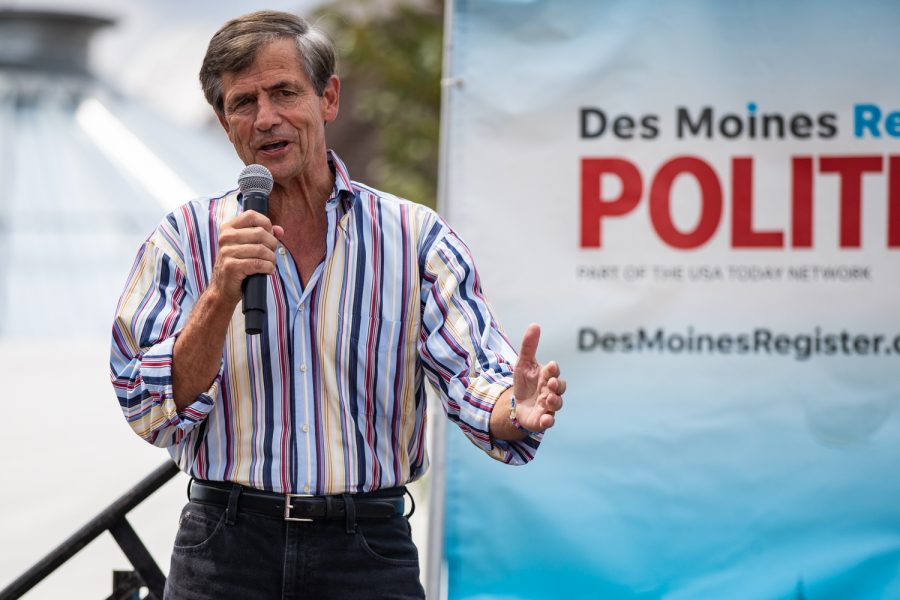Former representative Joe Sestak speaks at the Des Moines Register Political Soapbox during the Iowa State Fair in Des Moines, IA on Saturday, August 10, 2019.
Former Pennsylvania Rep. Joe Sestak
Former Pennsylvania Rep. Joe Sestak opened his speech by calling himself a “Pennsylvania boy.”
Sestak, who announced his candidacy June 23, highlighted his experience in foreign policy in a speech to the smallest crowd of the day at the Des Moines Register political soapbox.
Most of his speech revolved around his career in the military, and his call for the world to come together on foreign policy. A retired Navy admiral, he criticized Trump’s withdrawal from international agreements and implied Trump was breaking apart international ties.
“We need someone with the depth and breadth with global experience,” Sestak said, indicating he was the best one for the job.
Sestak also railed against the war in Iraq and foreign policy toward Iran until the nuclear deal. He said America needed a president to prevent the U.S. from going to war.
In answering questions to reporters, he said issues that needed to be addressed included China’s control of 5g, and putting sanctions on Russia for interference in elections.
“What we need to do is not scattershotting tariffs, but to bring together the world,” Sestak said.
On his website, he’s released several policy plans addressing creating jobs, addressing health care costs, and environmental protection, among other issues.
Osceola resident Terry Jacobsen said he’s enjoyed watching the candidates. One thing from Sestak’s speech that stuck with Jacobsen was the idea of convening the world to face problems together.
“I think he did really well,” Jacobsen said. pic.twitter.com/Hz4o9rZ8gA
— Daily Iowan Politics (@DIpolitics) August 10, 2019
Sestak highlighted his election to a heavily Republican district in Pennsylvania in 2006 and again by more than 20 points in 2008 before making an unsuccessful run for Senate in 2010.
He called climate change the “gravest issue,” and called for giving benefits to everyone similar to ones for military members such as free child care and health care.
Sestak hasn’t qualified for any of the three debates, and told reporters he wanted to go to community events across Iowa and America to build support for his campaign.
His late entrance into the Democratic presidential-nomination race, he said, was his daughter’s return of brain cancer, also calling for more access to generic or experimental medications.
And he always keeps a reminder of her with him. During his time at the fair, as the former admiral waved his hands to emphasize his points, a beaded bracelet glinted in the sunlight. The former admiral never takes it off. It was made by his daughter on the eve of her first brain surgery when she was four years old. He said it remains about “70 percent original.”
